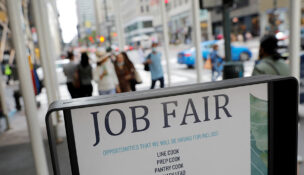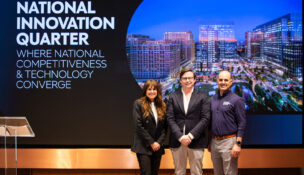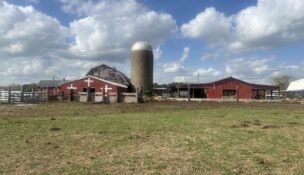Hitting a wall
Virginia Business //September 3, 2019//
While national news about immigration focuses on raids to deport people who are in the United States illegally, Virginia immigration attorneys warn that the biggest immigration problems businesses face are visa application delays and denials.
“What we see are obstacles to legal immigration [that are] inconsistent and arbitrary,” says Jennifer A. Minear, a director in Richmond-based law firm McCandlish Holton’s immigration practice group.
Hiring workers from other countries is more difficult than it used to be, according to Minear, who is president-elect of the American Immigration Lawyers Association. “The processing time is increased for all types of visas, and the outcomes are less certain than they’ve ever been.”
There’s particular concern about the H-1B visa program, which allows companies to employ foreign workers temporarily in occupations requiring highly specialized knowledge and at least a bachelor’s degree, or its equivalent, in a certain specialty.
The H-1B is the country’s largest temporary employment visa program, according to the Pew Research Group. A worker can stay in the United States initially for up to three years on an H-1B visa. That initial visa can then be extended once for up to a total of six years.
‘A frustrating game’
The denial rate for H-1B visas has jumped significantly, notes Lakshmi Challa of Challa Law Group in Henrico County. Denial rates for H-1B petitions for initial employment rose from 6% in fiscal year 2015 to 32% in the first quarter of FY 2019, according to the National Foundation for American Policy.
Last year, the top 100 Virginia employers filing applications to sponsor H-1B workers were seeking to hire nearly 7,850 people at an average salary of $82,643, according to employment website Myvisajobs.com. Top employers sponsoring foreign workers in the commonwealth last year included Capital One, which was hiring developers and software engineers, and the University of Virginia, which was seeking assistant professors.
Challa says that U.S. Citizenship and Immigration Services (USCIS) has changed how it determines whether a position qualifies as a specialty occupation.
“Instead of the formal process of rewriting policy, they’re just doing it through their decisions,” she says. “To make matters worse,” she adds, USCIS has rescinded a longstanding policy memorandum that directed adjudicators to give deference to a prior approval of an H-1B petition when considering an extension involving the same employer and the same worker.
With extension petitions now receiving as much scrutiny as initial petitions, “this puts the H-1B community in very uncomfortable circumstances,” Challa says, because many workers hope for long-term employment.
The immigration policy changes are also creating a “substantial increase” in businesses seeking her legal assistance, Challa says.
“Highly skilled talent is a critical resource, and any issues impacting their immigration status causes business disruption,” she adds. Increased denials of H1-B petitions impact a company’s bottom line, Challa says, and creates “a feeling of uncertainty throughout the organization and beyond, hindering their ability to retain and recruit international talent.”
Michael McVicker, an immigration attorney in Reston, reports that the process of applying for an H-1B visa has become more costly for businesses because much more paperwork is often required.
Requests for Evidence (RFE), a request issued by USCIS to petitioners for residency, citizenship, family visas and employment visas, “have gone up dramatically,” McVicker says.
“Before, you could have a two-paragraph job description and an employer support letter was maybe three pages in length. Now it needs to be much longer,” he says.
Businesses continue to wade through the process because there is a shortage of skilled U.S. workers, especially in the IT sector, McVicker says. After spending time and money searching for domestic employees, “employers … don’t look forward to the extra expense” of visa applications, he adds.
Minear calls the situation “a frustrating game right now. You have to be prepared for how to play that game. It’s totally unpredictable.” But a company can go to court, and, in the long run, she says, “when a business sues, usually the government will just reverse the denial.”
Labor headaches
In addition to seeking H-1B visas for skilled foreign workers, businesses rely on other types of employment visas to fill jobs that attract few U.S. applicants, says Dustin W. Dyer with Henrico-based Dyer Immigration Law Group.
The H-2A program allows U.S. employers to bring foreign nationals to the country to fill temporary agricultural jobs. In the Old Dominion, Dyer says, that might mean harvesting apples in Winchester or working in tobacco fields in Southern Virginia.
H-2B visas permit employers to hire foreign workers to come to the United States and perform nonagricultural services on a one-time, seasonal or intermittent basis. These employees, for example, might work during the high season at a ski resort or at an amusement park.
Congress has set the H-2B cap at 66,000 workers per fiscal year. In May it was announced that 30,000 additional visas would be allowed through the end of the current federal fiscal year, ending Sept. 30. That ceiling was reached in June.
“Businesses are not able to bring in the workers they need to [hire] for seasonal jobs that are a lot of hard labor for low pay,” Dyer says. The choices, he says, usually are to increase wages in an effort to attract more American workers or face a downturn in business.
Large companies have more flexibility to avoid the impact of labor shortages, according to Dyer, but “smaller businesses suffer; it’s too much of a headache.”
These visa headaches hurt the Virginia economy in a number of ways, says Challa, noting that the commonwealth is home to the eighth-largest foreign-born population in the United States.
The economy has benefited from foreign workers on H-1B visas who are generally highly paid, dependable consumers, she says. Now, “these folks are concerned about making an investment like buying a house” because of uncertainties about their immigration status.
Also, approximately 168,000 Virginians are employed by immigrant-owned companies, Challa says, and “many of these companies are looking to expand to the U.S. because they are supporting a tech company in the U.S. … They look [and] see how easy is it going to be if they are investing? Can they bring in their senior executives? That is the most critical issue given the current trends.” With visa denial rates going up, “that’s a major consideration that they have. It’s one of the first questions they ask,” she says.
“The startup community is led by the international community,” she adds. “We need to make sure we have smart immigration policies that are fostering economic growth and continue to make the U.S. the hub for disruptive technology.”
Minear urged Virginia businesses to be more vocal about the problems they are encountering and “encourage congressional oversight” of USCIS’ processing delays. “They are overstepping. American companies need to make it plain the impact this is having on the American economy.”



















